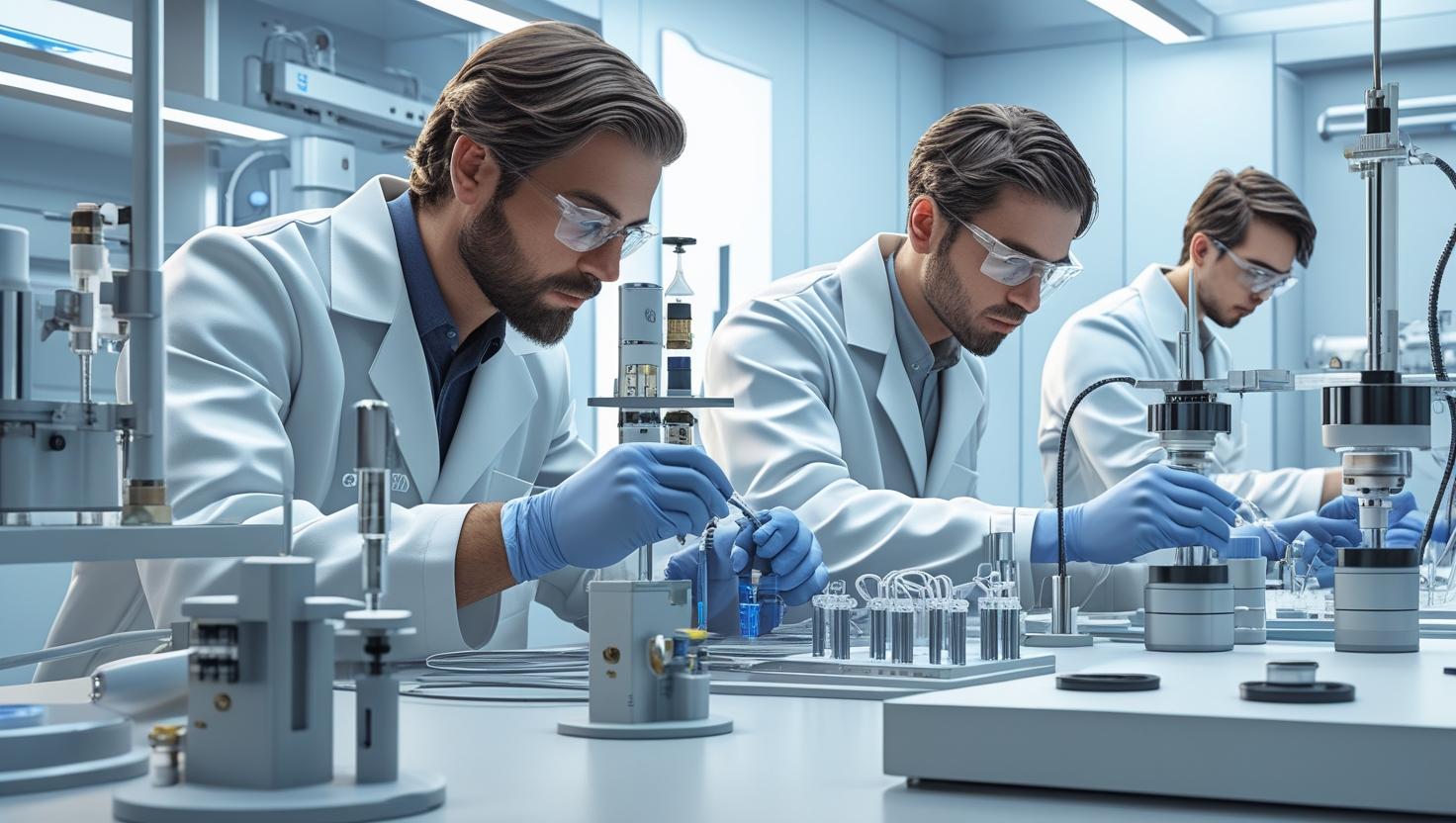Artificial Intelligence (AI) is transforming the landscape of medical device testing, bringing forth a paradigm shift that enhances precision, efficiency, and regulatory compliance. Traditionally, medical device testing involved labor-intensive processes, manual data analysis, and time-consuming clinical validations. However, the integration of AI is now enabling a smarter, faster, and more predictive approach to testing, thereby significantly reducing time-to-market while improving the safety and effectiveness of medical technologies.
One of the most prominent trends in this revolution is the adoption of machine learning algorithms for predictive analytics. AI can analyze vast datasets from preclinical and clinical trials, identify patterns, and predict potential failures or safety issues long before they manifest in real-world applications. This proactive identification of risks allows manufacturers to refine their devices at an early stage, thus avoiding costly recalls and post-market failures. Moreover, AI-driven models can simulate a wide range of test scenarios, which drastically reduces the need for physical prototyping and animal testing.
Download PDF Brochure @ https://www.marketsandmarkets.com/pdfdownloadNew.asp?id=254474064

Another innovation is the use of AI in automating the testing of embedded software and firmware within medical devices. With the rise of connected and smart devices, software plays a crucial role in device functionality. AI tools can automatically generate test cases, conduct regression testing, and identify anomalies in real time. These capabilities not only accelerate the testing process but also enhance the accuracy of defect detection, which is critical in life-saving medical technologies.
AI is also driving advancements in image and signal analysis for diagnostic devices. Algorithms powered by deep learning can now interpret complex medical images such as X-rays, MRIs, and CT scans with precision comparable to or even exceeding that of human radiologists. In the context of device testing, these algorithms are used to validate the imaging capabilities of diagnostic tools, ensuring they meet performance standards under various conditions. Similarly, AI models can analyze biosignals like ECGs and EEGs, aiding in the validation of monitoring devices with enhanced sensitivity and specificity.
The integration of AI with digital twins is emerging as a groundbreaking innovation in the medical device testing ecosystem. A digital twin is a virtual representation of a physical device that can be used to simulate its behavior in a clinical environment. AI enhances this concept by enabling continuous learning and real-time feedback based on actual performance data. Manufacturers can use digital twins to test devices under numerous simulated conditions, speeding up the iterative design process and identifying potential performance issues before physical production begins.
Regulatory compliance and documentation, often seen as bottlenecks in medical device approval processes, are also being streamlined through AI. Natural language processing (NLP) algorithms can analyze large volumes of regulatory texts, generate compliance checklists, and even draft technical documentation based on test results. These capabilities significantly reduce the workload on regulatory teams and minimize human errors, thus ensuring a smoother and faster pathway to regulatory approvals from bodies such as the FDA or the European Medicines Agency.
AI is also transforming post-market surveillance and continuous quality assurance. Devices equipped with AI can monitor their own performance in real-time and flag any deviations from expected behavior. This feedback loop enables continuous validation and refinement of device functionality, which is especially critical for high-risk devices such as implantables or life-support systems. Manufacturers can leverage this data to improve product iterations and meet evolving compliance requirements more effectively.
The role of AI in enhancing patient-specific testing is also gaining momentum. Personalized medicine is becoming increasingly important, and AI enables the customization of medical device testing based on patient-specific parameters. For instance, AI can model how a device would perform in a patient with certain genetic markers, comorbidities, or anatomical differences. This tailored approach ensures devices are optimized for diverse patient populations, thereby improving clinical outcomes and reducing adverse events.
Frequently Asked Questions (FAQs) on the Medical Device Testing Market
- What is medical device testing and why is it important?
Medical device testing involves evaluating a device’s safety, performance, functionality, and compliance with regulatory standards before it reaches the market. This process is crucial to ensure that devices do not pose any risk to patients, meet international standards (like ISO 13485, FDA, MDR), and perform as intended under various conditions. - What types of tests are performed on medical devices?
Medical devices undergo various tests such as biocompatibility testing, electrical safety testing, electromagnetic compatibility (EMC), software validation, sterility testing, mechanical performance testing, and usability evaluation. These tests verify that the device meets clinical and technical expectations across its lifecycle. - How does AI impact the medical device testing market?
Artificial Intelligence (AI) is transforming medical device testing by enabling predictive analytics, automated defect detection, real-time monitoring, digital twin simulations, and faster validation processes. AI helps reduce testing time, improve accuracy, and ensure compliance by continuously analyzing large datasets from device trials and performance logs. - What are the major regulations governing medical device testing?
Medical device testing is governed by regulations such as the U.S. FDA’s 21 CFR Part 820, ISO 13485, EU MDR 2017/745, and IEC 60601 series for electrical safety. These standards ensure that devices meet essential safety and performance requirements for market approval and post-market surveillance. - Who are the key players in the medical device testing market?
Leading companies in the medical device testing market include SGS SA, Intertek Group, Eurofins Scientific, TÜV SÜD, Bureau Veritas, and UL Solutions. These firms offer comprehensive testing, inspection, and certification services to ensure regulatory compliance and global market access for device manufacturers.
See The Latest Semiconductor Reports:
Live Entertainment Market by music concerts, sports events, e-sports, theaters & musicals, Al & automation, motion tracking, real-time streaming, pre-recorded/recorded streaming, distribution & streaming – Global Forecast to 2030
UV Disinfection Equipment Market by UV Lamps (Mercury UV Lamps, UV LEDs), Reactor Chambers, Quartz Sleeves, Controller Units, Water and Wastewater Disinfection, Process Water Disinfection, Surface Disinfection, Air Disinfection – Global Forecast to 2030
